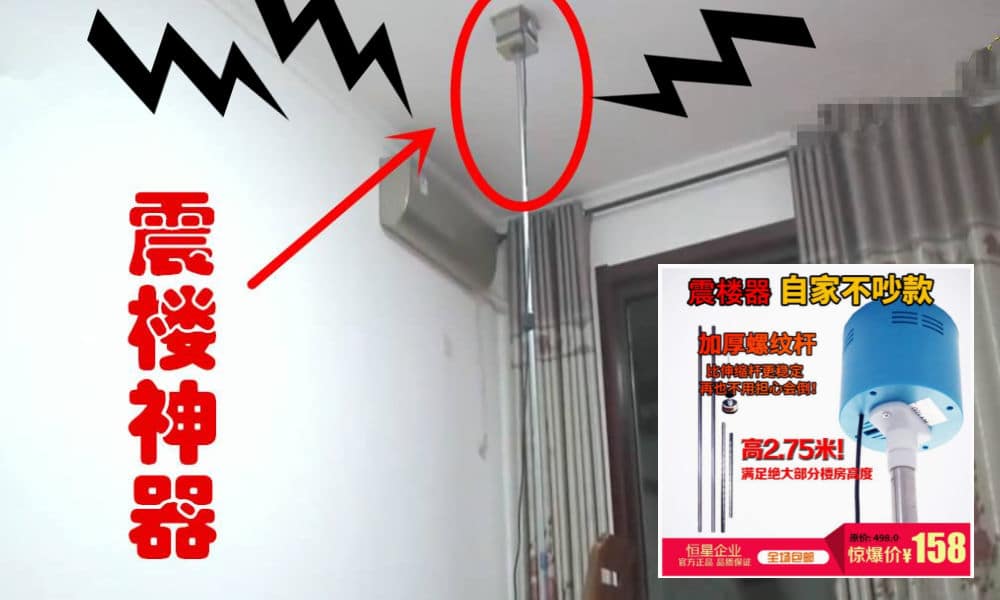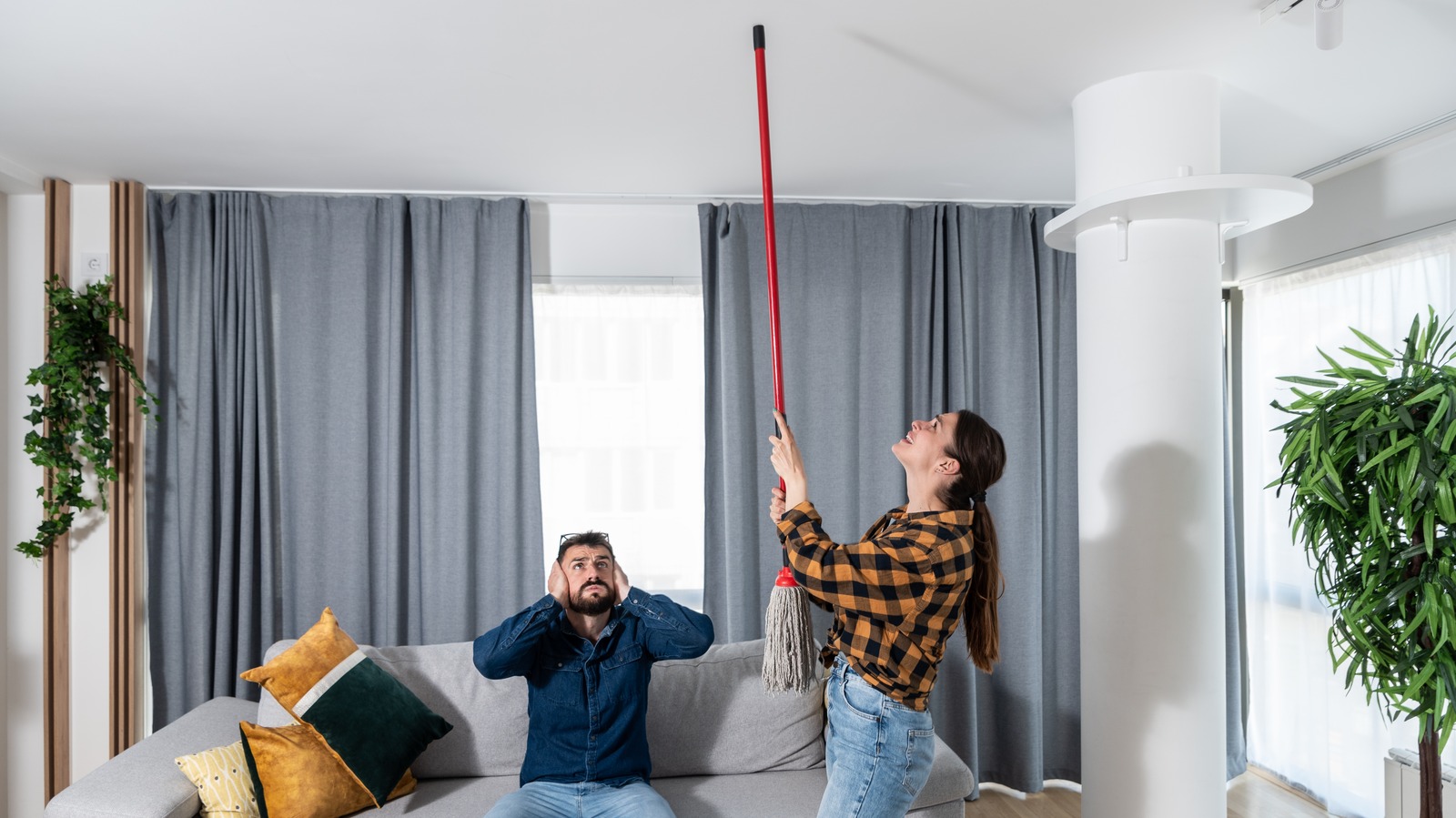Noise from upstairs neighbors can be a real problem. It can disturb your peace and quiet at home.
Luckily, there are effective ways to reduce that noise. Living in an apartment or a multi-story home often means sharing space with others. Noisy footsteps, loud music, or even moving furniture can disrupt your daily life. This noise can create stress and frustration.
Finding ways to reduce this sound is important for your comfort. There are simple solutions that can help. From soundproofing techniques to communication tips, you can take steps to create a quieter living environment. Let’s explore these options and improve your home experience.
The Impact Of Upstairs Noise
Noise from upstairs neighbors can disrupt daily life. It affects sleep, focus, and relaxation. Understanding the impact of this noise helps in finding solutions.
Identifying Common Noise Issues
Common noise issues from upstairs neighbors include:
- Footsteps
- Furniture moving
- Music or loud TV
- Barking dogs
- Children playing
Each noise type can vary in intensity. Some may be constant, while others are occasional. Knowing these types helps in addressing them effectively.
Effects On Wellbeing
Upstairs noise can lead to various problems. Here are some effects on wellbeing:
| Effect | Description |
|---|---|
| Sleeplessness | Noise interrupts sleep cycles. This can lead to fatigue. |
| Stress | Constant noise raises stress levels. This affects mood. |
| Reduced Focus | Noise makes it hard to concentrate on tasks. Productivity decreases. |
| Social Isolation | Noisy environments can push people indoors. This limits social interactions. |
Addressing these issues is important. Better wellbeing leads to a happier life.

Credit: www.whatsonweibo.com
Initial Steps To Address Noise
Dealing with noise from upstairs neighbors can be tough. Start with simple steps. These steps help you understand the situation better. Communication and knowledge are key.
Communication With Neighbors
Talk to your neighbors first. A friendly chat can solve many problems. Explain the noise issue clearly. Use calm words. Avoid blaming them. They may not know their noise bothers you.
Choose the right time to talk. Avoid times when they seem busy or stressed. Be polite and open to feedback. This can lead to a better understanding.
Understanding Noise Ordinances
Know the noise rules in your area. Most cities have noise ordinances. These rules limit loud sounds during certain hours. Check local laws for specifics.
Understanding these ordinances helps you speak with your neighbors. You can explain the rules if needed. This makes your case stronger.
Diy Solutions For Noise Reduction
Noise from upstairs neighbors can be frustrating. Many people seek DIY solutions to reduce this noise. Simple changes can make a big difference. Below are some effective methods to help you create a quieter home.
Using Rugs And Carpets
Floor coverings can significantly reduce noise. Rugs and carpets absorb sound. They also add comfort and warmth to your space.
- Choose thick rugs for better sound absorption.
- Place rugs in high-traffic areas.
- Layer rugs for extra cushioning.
Consider these options:
| Type of Floor Covering | Sound Absorption Rating |
|---|---|
| Wool Carpet | High |
| Polyester Rug | Medium |
| Foam Mats | Very High |
Adding a rug pad can also help. It increases thickness and sound absorption.
Sealing Gaps And Cracks
Gaps and cracks in walls and floors let noise in. Sealing these openings reduces sound transfer. This is an easy and cost-effective solution.
- Use caulk to seal small gaps.
- Apply weather stripping around doors and windows.
- Inspect baseboards for openings.
Follow these steps for sealing:
- Identify gaps or cracks.
- Clean the area around the gap.
- Apply caulk or weather stripping.
- Allow it to dry completely.
Sealing gaps can reduce noise significantly. It also improves energy efficiency in your home.

Credit: www.housedigest.com
Soundproofing Techniques
Reducing noise from upstairs neighbors can be challenging. Soundproofing techniques offer effective solutions. Use these methods to create a quieter living space.
Installing Acoustic Panels
Acoustic panels absorb sound. They help reduce noise transmission. Follow these steps to install them:
- Choose the right size panels.
- Select a suitable adhesive or mounting hardware.
- Find the best locations on your ceiling or walls.
- Secure the panels in place.
Consider these types of panels:
- Foam panels
- Fabric-wrapped panels
- Wood panels
These panels come in various colors. They can match your decor while reducing noise.
Ceiling Modifications
Modifying your ceiling can greatly reduce noise. Here are some effective methods:
| Method | Description | Effectiveness |
|---|---|---|
| Drop Ceiling | A suspended ceiling adds sound-absorbing materials. | High |
| Soundproof Drywall | Use specialized drywall to block sound. | High |
| Resilient Channels | Install channels to decouple drywall from the ceiling. | Medium |
Choose the method that fits your budget. Each option offers different levels of soundproofing.
Remember, soundproofing takes time and effort. Be patient and persistent for the best results.
Choosing The Right Materials
Reducing noise from upstairs neighbors is possible with the right materials. Proper materials can block or absorb sound. This section covers effective insulation types and budget considerations.
Effective Insulation Types
Different insulation types work better for soundproofing. Here are some effective options:
- Acoustic Panels: These panels absorb sound waves. They are ideal for living rooms and bedrooms.
- Mass Loaded Vinyl (MLV): This is a heavy material. It blocks sound effectively. Use it on walls, floors, or ceilings.
- Spray Foam Insulation: This expands and fills gaps. It reduces noise transmission well.
- Rockwool Insulation: Made from natural stone, it provides excellent sound absorption.
Considerations For Budget And Installation
Budget plays a big role in soundproofing. Consider these factors:
- Material Costs: Some materials are more expensive than others. Compare prices before purchasing.
- Installation Ease: Some materials require professional help. Others can be installed DIY.
- Long-Term Benefits: Investing in quality materials can save money. Better materials last longer and provide better noise reduction.
Use the following table to compare costs and effectiveness:
| Material | Cost per sq ft | Noise Reduction Rating (NRR) |
|---|---|---|
| Acoustic Panels | $2 – $5 | Up to 30 dB |
| Mass Loaded Vinyl | $1 – $3 | Up to 35 dB |
| Spray Foam Insulation | $0.50 – $2 | Up to 25 dB |
| Rockwool Insulation | $1 – $4 | Up to 40 dB |
Choose the right materials based on your needs. Focus on effectiveness and budget. Soundproofing enhances comfort in your home.
When To Involve Management
Dealing with noise from upstairs neighbors can be stressful. Sometimes, talking to them does not work. In those cases, it may be time to involve management. Knowing when to take this step is crucial. Management can help resolve issues effectively.
Navigating Apartment Policies
Each apartment has its own rules. Understanding these rules can help you. Review your lease agreement for noise policies. Most agreements outline quiet hours and noise limits. This gives you a clear basis for your complaint.
Here are some common policies to check:
- Quiet hours—typically late evening to early morning.
- No loud music or parties allowed.
- Noise complaints must be documented.
Familiarize yourself with your apartment’s policies. This knowledge strengthens your case when contacting management.
Seeking Assistance From Landlords
If noise continues, reach out to your landlord. Document all noise incidents. Include dates, times, and types of noise. This evidence is vital.
Follow these steps when contacting your landlord:
- Write a clear and polite email or letter.
- Include your documentation of noise.
- Request a meeting to discuss the issue.
Landlords want to maintain a peaceful environment. They may address the issue with your neighbors. Be patient. Sometimes, it takes time for them to respond.
Involving management can lead to a solution. Your living space should be comfortable and quiet.
Legal Options For Persistent Noise
Dealing with noise from upstairs neighbors can be frustrating. Legal options exist for those who face constant disturbances. Understanding these options can help you find peace.
Consulting Legal Experts
Sometimes, talking to a legal expert is necessary. They can guide you through your rights and options.
- Research local laws: Noise regulations vary by location.
- Document incidents: Keep a record of noise disturbances.
- Gather evidence: Use audio recordings or witness statements.
Legal experts can help you understand:
- Your lease agreement.
- Local noise ordinances.
- Potential legal actions.
Consulting an expert can save time and stress. They may also suggest sending a formal letter to your landlord or the neighbor.
Mediation And Dispute Resolution
Mediation can be an effective way to resolve noise issues. This process involves a neutral third party.
- Benefits of mediation:
- Less costly than going to court.
- Faster resolution.
- Confidential process.
Steps to take:
- Find a local mediation service.
- Set up a meeting with your neighbor.
- Discuss the noise issue openly.
Many communities offer mediation programs. Explore these options before considering court action.
Maintaining Good Neighborly Relations
Living near others can be challenging. Noise from upstairs neighbors can disrupt your peace. It is important to handle these situations with care. Good neighborly relations matter. Communication can help reduce tension.
Balancing Assertiveness And Empathy
Being assertive does not mean being rude. Start by expressing your concerns calmly. Here are some tips:
- Choose the right time to talk.
- Use “I” statements. For example, say “I hear loud noise” instead of “You are noisy.”
- Listen to their side of the story.
- Avoid blaming language. Focus on finding a solution together.
Try to understand their situation. They may not realize the noise is bothering you. A friendly approach can open doors. This makes it easier to solve the problem.
Long-term Strategies For Peaceful Living
Building a good relationship takes time. Consider these long-term strategies:
- Introduce yourself. A friendly chat can break the ice.
- Share your contact information. This helps in case of emergencies.
- Organize a neighborhood gathering. This fosters community spirit.
- Discuss noise issues regularly. Keep communication open.
Consider soundproofing your space. Simple measures can make a difference:
| Soundproofing Method | Description |
|---|---|
| Area Rugs | Softens noise and absorbs sound. |
| Wall Panels | Helps to block noise between rooms. |
| Weather Stripping | Seals gaps around doors and windows. |
These strategies promote harmony. Keeping peace with neighbors enhances your living experience.

Credit: www.soundproofcow.com
Frequently Asked Questions
How Can I Soundproof My Apartment From Upstairs?
To soundproof your apartment, consider adding thick carpets or rugs to absorb noise. Use soundproof curtains on windows and door seals to block sound entry. Additionally, wall panels or acoustic foam can minimize noise transmission. These solutions can significantly reduce the disturbances caused by upstairs neighbors.
What Are Effective Noise-canceling Solutions?
Effective noise-canceling solutions include using white noise machines or apps. They can mask disruptive sounds from upstairs. Earplugs are also a practical option for immediate relief. Additionally, investing in noise-canceling headphones can help during quiet activities, providing a more peaceful living environment.
How Can I Communicate With Noisy Neighbors?
Start by approaching your neighbors politely and expressing your concerns. Choose an appropriate time to discuss the issue calmly. Be specific about the noise disturbances and suggest possible solutions, like adjusting their activities. A friendly conversation can lead to a mutual understanding and quieter living conditions.
Are There Legal Options For Noise Complaints?
Yes, there are legal options for noise complaints. Most cities have noise ordinances that regulate sound levels during specific hours. If informal discussions fail, document the disturbances and contact your local authorities or housing association. They can enforce noise regulations and assist in resolving the issue.
Conclusion
Dealing with noise from upstairs neighbors can be tough. It affects your peace at home. Use soundproofing materials to block noise. Simple changes can make a big difference. Talk to your neighbors about the issue. A friendly chat can lead to better understanding.
Try to stay calm and patient. With time and effort, you can enjoy a quieter space. Take these steps to improve your living experience. Your home should be a place of comfort and rest.

